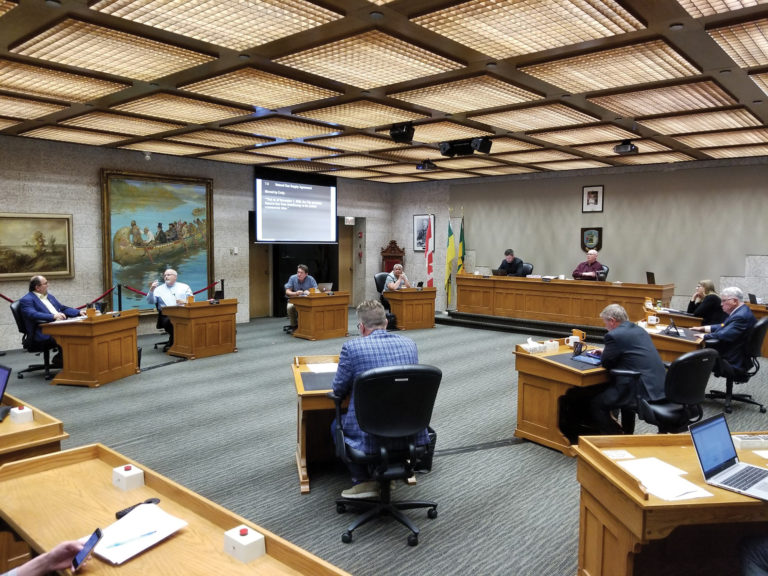
The City of Prince Albert’s financial picture has improved faster than expected, according to the latest COVID-19 impact report presented at Monday’s executive committee meeting.
As of Sept. 11, the financial department estimates the COVID-19 outbreak will cost Prince Albert an extra $1,096,951. That’s higher than the previous estimate of $906,606, however council saved an extra $176,250 by voting to stop applications for a $10-million emergency loan and $10-million emergency line of credit.
Mayor Greg Dionne said the City’s financial picture is solid enough that they should need the extra $20-million until next fall at the earliest. He said council can reapply for those benefits if the outbreak gets worse.
“If we go south and we need the money, then that council of the day can decide to borrow it,” Dionne said in an interview after the meeting. “Today we don’t need it, and if we need it next year, it will be late fall—if COVID is still here.”
The City still faces tremendous financial pressure from the number of unpaid utility bills. Financial Director Cheryl Tkachuk said they’re currently tracking more than $400,000 from unpaid accounts. She expects the City will never collect on anywhere from $100,000 to $300,000 of what it’s owed.
City officials keep water bills in perpetuity, so residents won’t be allowed to open new accounts before they pay for their old ones. Still, the lack of payment is causing problems. Both Dionne and Tkachuk urged residents to setup a payment plan if they fall behind.
“If you don’t want us to come after you, pay $20 a month,” Dionne said. “That’s not a hard burden. At the end of the day, we want it paid, and we have all kind of payment options.
“We just encourage people who are in that situation, don’t ignore us, because we will do water shutoffs. Please just come in and make a simple payment play—what you can afford—and we’ll accept it.”
Tkachuk said they’ve sent more than 1,7000 letters out to account holders warning them that their utility bills are overdue. The City also plans to focus on the largest unpaid bills first.
Despite those challenges, Tkachuck said the City is in good financial shape, largely thanks to property owners who paid their taxes on time. The City received less than 50 applications for property tax deferrals. That was far fewer than they expected.
“I’m very happy with where we’re at,” Tkachuk said. “I was expecting us to have a lot less people paying property taxes. I was expecting out utilities to be in a (bad) situation, there’s no doubt about that, but property taxes were a big one.”
She added that losses from shutting down City facilities weren’t as high as expected. They anticipated losing up to $500,000 from the Cooke Municipal Golf Course alone, which never happened.
The City also benefited from the provincial government’s MEEP program, without which the City could never have continued its summer paving program, Tkachuck explained. It also received a $4.1-million cash injection from the Municipal Revenue Sharing Grant on June 30. Barring major changes, the City will enter 2021 with about $2-million to $3-million in a COVID reserve account.
“I strongly believe we’ll be struggling with COVID into the New Year,” Dionne said. “That’s why we put this money away. It’s easy to spend the money today, but we put it into an account.”
